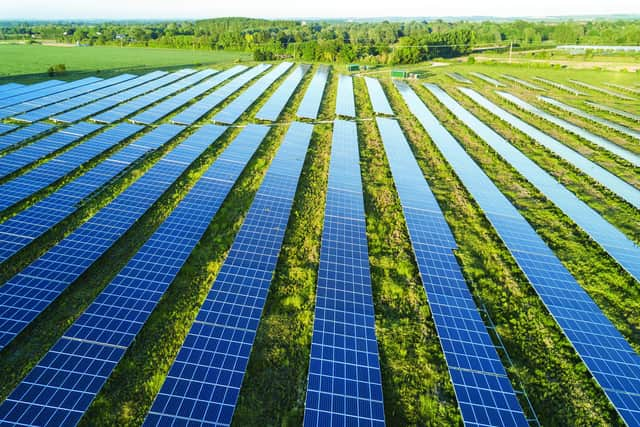Conference report: Early action on skills is key to renewable energy achieving net-zero status by 2045
The Scotsman’s Highlands and Islands Green Energy Conference in Inverness on Wednesday heard that early action on skills is key to the industry achieving net-zero status by 2045.
The event, sponsored by Wave Energy Scotland, Zero Waste Scotland and The Highlands and Islands Enterprise, brought together leaders of industry, academia and politics to talk about the Highlands and Islands renewable energy sector.
Advertisement
Hide AdAdvertisement
Hide AdStuart Black, chief executive of Highlands and Islands Enterprise (HIE), opened the event, delineating the region’s


green energy landscape, followed by a session on skills which raised questions around attracting talent.
Speakers from the University of the Highlands and Islands and NatureScot demonstrated the importance of skills for success in renewables.
A virtual keynote address from Michael Matheson MSP highlighted the major green energy initiatives in the region, highlighting the most advanced tidal stream energy projects in the world being worked on by the European Marine Energy Centre and Wave Energy Scotland.
Newly-elected head of Highland Council Raymond Bremner got the audience excited about the potential for green energy in the Highlands and Islands, and welcomed businesses to reach out for collaborations.
In the afternoon, the conference panel began by discussing the importance of research, and demonstrating and testing new technologies.
The panel, chaired by Audrey MacIver of HIE, put out a call for an innovation policy to help the sector.
Each panelist brought a different perspective from their respective backgrounds in solar, wave and marine energy, and hydrogen power.
Advertisement
Hide AdAdvertisement
Hide AdThe conference concluded with a panel on the challenges and benefits that come with large infrastructure projects.
Both aspects were examined with input from community action consortium Local Energy Scotland, and discussions around business support and investments from the Scottish National Investment Bank and Highland Council.
Helen Lavery of Zero Waste Scotland outlined the importance of a circular economy when it comes to sustainable business models.